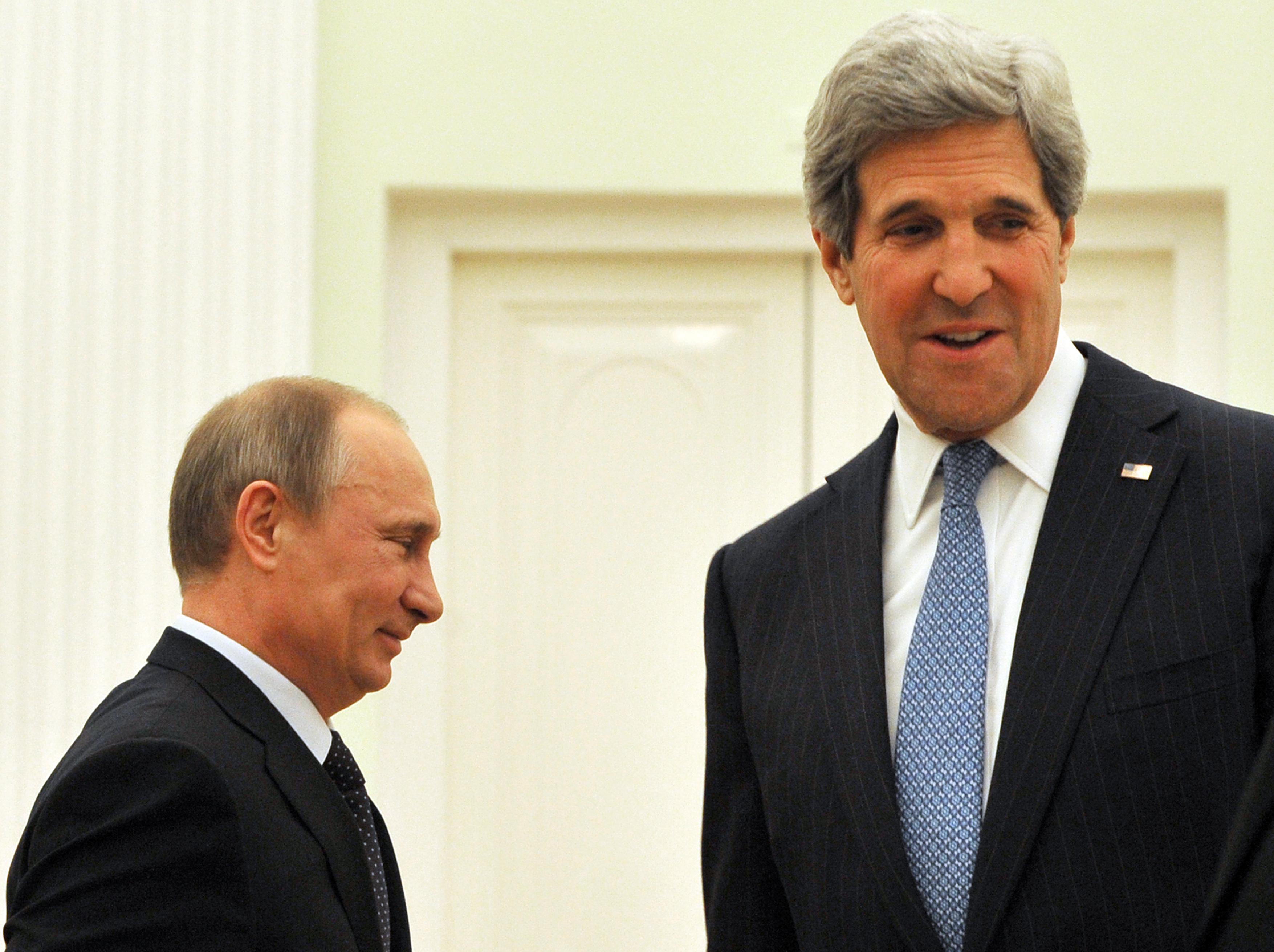It’s not exactly an auspicious time for a diplomatic breakthrough as John Kerry arrives in Russia today for talks on Syria and Ukraine with Vladimir Putin—the highest-level U.S. visit to the country in two years.
In Ukraine, a ceasefire that Putin’s been violating on a nearly daily basis now looks more tenuous than ever after heavy fighting last week. And just today, a report compiled by opposition leader Boris Nemtsov, murdered in Moscow last February, was released, alleging that 220 Russian soldiers died in two major battles in Ukraine, contradicting the Kremlin’s official line that it has not sent troops into the neighboring country.
In Syria, the fighting between the Russian-backed government, U.S.-backed rebels, and increasingly powerful jihadist groups, is intractable than ever. The one tangible achievement of U.S.-Russian diplomacy in recent years, the 2013 deal to remove Bashar al-Assad’s chemical weapons, looks a lot more dubious today following reports that the Syrian government is still employing chlorine gas as a weapon.
As if that weren’t bad enough, Putin used his speech at Russia’s Victory Day celebrations on May 9 to blast the U.S. for its “attempts to create a unipolar world.”
So what exactly do the U.S. and Russia have to talk about? A State Department official downplayed expectations for the trip by describing it as an effort to “keep these lines of communication open,” but there’s actually more room for progress than you might think.
On Ukraine, full implementation of the ceasefire agreement and an end to the conflict is probably off the table at the moment, but if Russia can be convinced that full-scale hostilities are not in its interest, there’s potential for the war to turn into a “frozen conflict”: the rebel-held eastern regions would remain under de facto Russian control for the time being but violence would die down. While far from an ideal outcome, this would at least give Kiev some time to rebuild Ukraine’s economy and military with substantial western support. The alternative is a return to full-scale hostility with deepening western military involvement.
Meanwhile in Syria, Assad’s army is struggling to replenish its ranks and has suffered a number of recent setbacks at the hands of rebel forces. It’s possible that this could make Assad more willing to negotiate a political solution to the conflict, but that will likely take pressure from his international backers, Iran and Russia. There’s some hope that a deal over Iran’s nuclear program might make Tehran more willing to cooperate with western governments on Syria, and Kerry’s trip is likely aimed at seeing if Russia might be amenable as well, despite Putin’s strong disagreements with the U.S. over the conflict.
These prospects are both long shots. After the past two years, trust between Washington and Moscow is lower than ever. Kerry will most likely come away from this trip with little more than a handshake. But if there’s at least a chance to make these nightmarish conflicts more manageable if not solvable, it can’t hurt to try.
